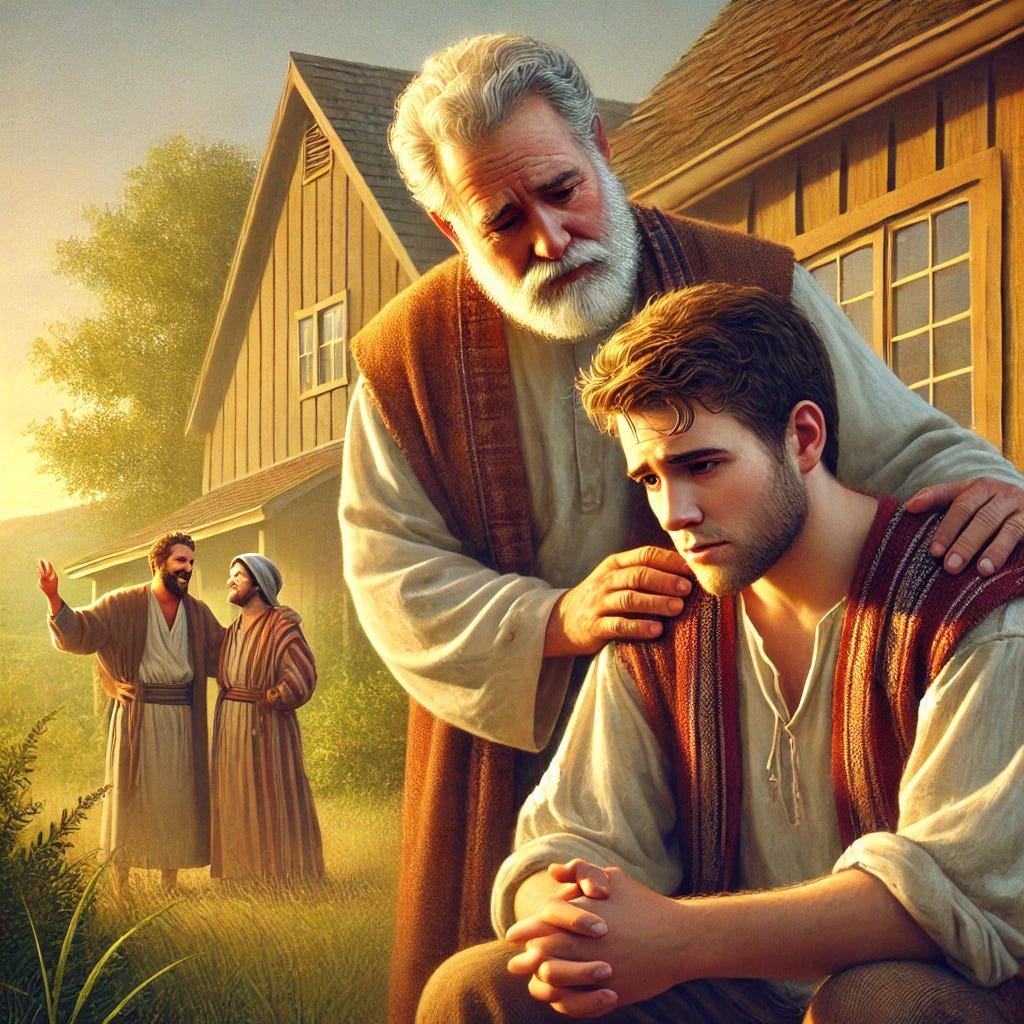When Jesus came onto the scene, he framed God’s character very differently than the religious leaders of his day. In one of his most well-known stories, the parable of the prodigal son, Jesus offers a profound insight into the nature of God’s forgiveness, demonstrating that it's not a transaction based on obedience but an outpouring of unconditional love.
A Foundation of Law and Love
The Old Testament, particularly the book of Deuteronomy, emphasizes the importance of obedience to God's law. This emphasis on law and covenant might lead some to believe that God's forgiveness is conditional, dependent on human adherence to rules and regulations. However, a closer look reveals that even within the legal framework of the Old Testament, God's love and compassion shine through.Chapters 29 and 30 of the book of Deuteronomy, while outlining the consequences of disobedience, also highlight God's willingness to forgive and restore those who return to Him. After Chapter 29’s harrowing prediction that Israel would forget God and His Law ending up lost in the territory and hands of their enemies, a promise emerges in Deuteronomy 30: God will bring back scattered Israel. He will bring His beloved people home and circumcise their hearts, enabling them to love Him with all their heart and soul — when they “come to their senses” (30:1) in the depth of their despair.
Jesus uses this phrase in his story of the prodigal son to trigger his law-literate listeners to recall Deuteronomy 30:1-10. Jesus insinuates the Father's love remains constant despite the son's rebellion.
A Revelation of Unconditional Love
In the parable of the prodigal son, found in Luke 15:11-32, Jesus offers a powerful illustration of God's unchanging love and forgiveness. The younger son, who represents those who have strayed from God's path, leaves the Father with half the family’s wealth. He squanders it in wasteful living and ends in the ditch, feeding pigs - the worst ending a Jew could imagine.And when the son “comes to his senses” in the squalor of a pig pen, he comes home expecting the Father’s wrath. He even prepares a speech. But the Father’s response in Jesus’ story is much the same as it is in Deuteronomy 30. The Father’s love and forgiveness lead to a righteous robe, a family ring and a thump-thump-thumping celebration of life. With the Father, Jesus says, love always wins.
Jesus finishes his Character reveal of Israel’s God by suggesting something readers of God’s law already know: When we return to God, filled with remorse, we experience the depths of God's mercy and love. The Father's joyful welcome and extravagant celebration demonstrate that God's forgiveness is not earned through obedience but freely given to all who turn back to Him.
This parable challenges the notion that God's forgiveness is transactional, contingent on human performance. Instead, it reveals that God's love is unconditional, extending to all who seek Him, regardless of their past mistakes. The prodigal son's experience mirrors the journey of countless individuals who have found forgiveness and restoration in God's loving embrace.

The Older Brother's Struggle with Forgiveness
The parable also introduces the figure of the older brother, who represents those who have remained faithful to God's law — faithful Israel. The older brother's resentment towards his sibling highlights the difficulty of extending forgiveness to those who have wronged us. His anger and refusal to celebrate his brother's return expose the limitations of a legalistic understanding of forgiveness.The older brother's struggle serves as a reminder that true forgiveness is not an act of obedience but the overflow of a heart transformed by a relationship with the God of love. It is so full of the Father’s love that letting go of resentment and embracing compassion, even for those who have hurt us deeply, is our natural desire. The father's plea to the older brother, "You are always with me, and everything I have is yours," underscores the importance of extending grace and forgiveness to others, just as God has extended grace to us.
Conclusion
In the parable of the prodigal son, Jesus offers a profound insight into the nature of God's love and forgiveness. He reveals that God's love is not conditional, dependent on human obedience, but freely given to all who turn to Him. Jesus challenges us to move beyond a legalistic understanding of our relationship with God and embrace a deeper understanding of His heart.As we reflect on the parable of the prodigal son, may we be inspired to extend forgiveness to others, just as God has forgiven us. May we also remember that God's love is unchanging and unconditional, always available to those who seek Him.




.jpeg)